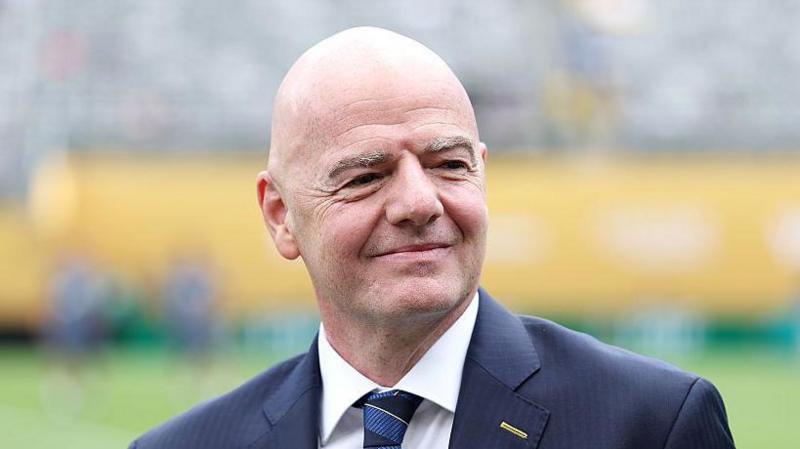FIFA's Infantino Admits Limitations in Resolving Geopolitical Conflicts




In the realm of international sports, football holds a central role, often seen as more than just a game but rather a powerful tool for unity and diplomacy. Recently, FIFA President Gianni Infantino addressed the global community, remarking on the complex relationship between football and international political issues, particularly concerning the increasing demands on football's governing bodies to take actions against Israel. These demands link back to broader geopolitical tensions and conflicts in the region, particularly the Israeli-Palestinian conflict, which remains one of the most protracted and controversial in modern history.
Infantino's statement underlines a critical dilemma facing global sports authorities: balancing the non-political nature of sports while addressing calls for justice and accountability that transcend the realm of sports. His insistence that FIFA "cannot solve geopolitical problems" points to the organization’s policy of maintaining neutrality in political matters, a stance that has been both defended and criticized in various contexts.
The debate around whether or not to sanction Israel has been fueled by numerous incidents and reports concerning freedoms and human rights issues. Critics argue that sports organizations like FIFA have a responsibility to take a stand in geopolitical conflicts where human rights are at stake, citing precedents where sports bodies have taken actions in similar contexts. For instance, FIFA and the International Olympic Committee have historically imposed sanctions and bans on countries like South Africa during its apartheid era, which eventually played a part in dismantling the racially discriminatory system.
Those opposed to politicizing sports argue that such sanctions can further entrench divisions rather than bridge them. They believe that sports can act as a conduit for dialogue and peace, suggesting that isolating a country can detract from these potential benefits. The underlying belief is that sport has the power to unite people across different backgrounds, cultures, and political views, and should therefore remain impartial and focused on fostering a spirit of fairness and unity.
The role of FIFA, with its vast global influence, is particularly significant in these debates. As the body responsible for regulating, organizing, and promoting football worldwide, its decisions can have far-reaching implications for its member nations and beyond. FIFA's stance on matters involving political controversies is often seen as a reflection of broader international perspectives and can set a precedent for other global bodies.
It’s crucial to consider the practical impacts of any decision by FIFA related to geopolitical issues. Sanctions or bans on national teams or clubs can affect many stakeholders including players, fans, and the general public, who might feel punished for political decisions beyond their control. This can lead to significant repercussions, not just in sports but in terms of international relations and public sentiment.
Moreover, with Israel and Palestine's volatile history attached to broader international dynamics involving countries in the Middle East and the global powers, any move by FIFA is bound to be highly scrutinized and potentially controversial. The situation is further complicated by the fact that Israel's sports teams, like those in many countries, are seen as representatives of the nation on the global stage, thereby intertwining their performances and participation with national identity and pride.
FIFA's governance is rooted in the principle that sport is separate from political, religious, or racial considerations. This principle is tested when global political pressures demand a stance that could align sports administration with international political agendas. The ongoing debate around FIFA's role in this context not only highlights the complex intersection of sports, politics, and ethics but also signals a broader question about the role of global organizations in the face of geopolitical conflicts.
As the discussion advances, it remains to be seen how FIFA will navigate these turbulent waters. The organization’s final decisions and their implementations are likely to be watched closely, as they may influence not only the immediate situation concerning Israel but also set a broader precedent on how sports can and should interact with global political issues. Meanwhile, the global community continues to watch and wait, hoping for resolutions that promote both justice and peace.